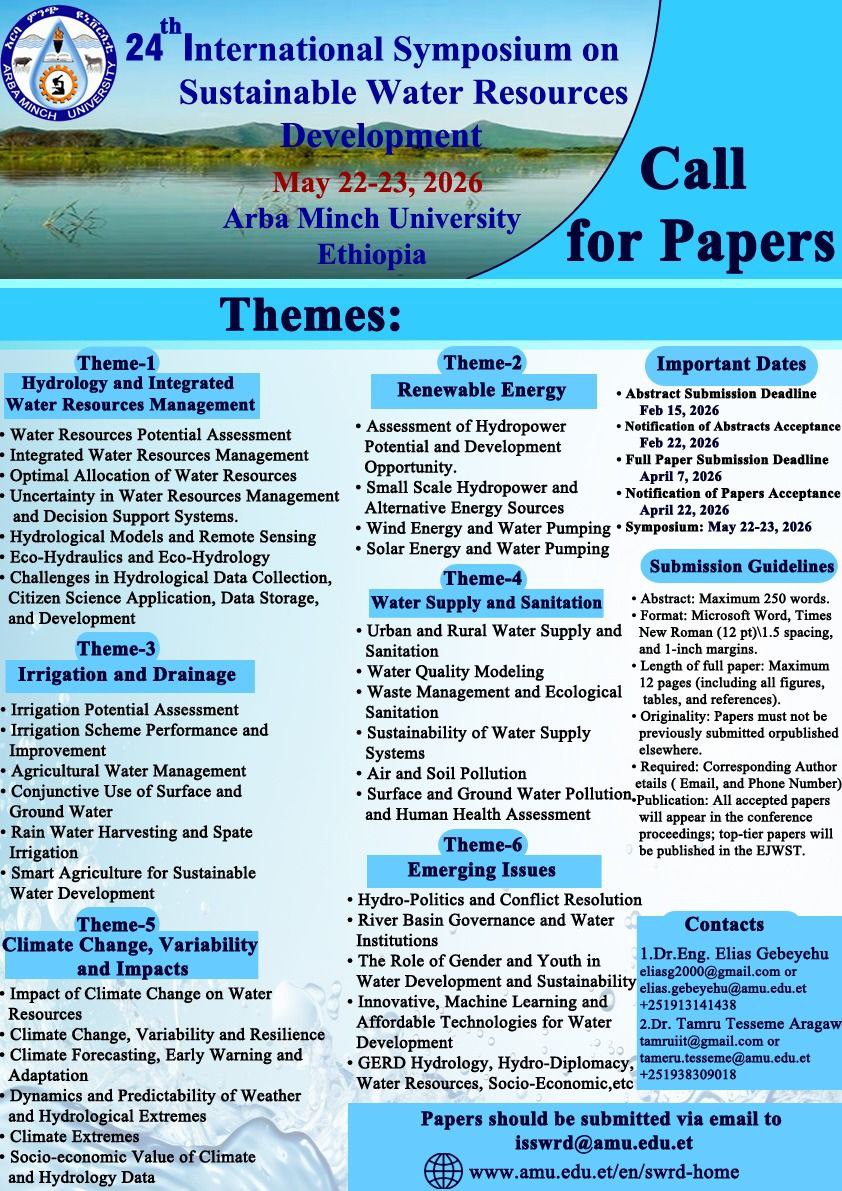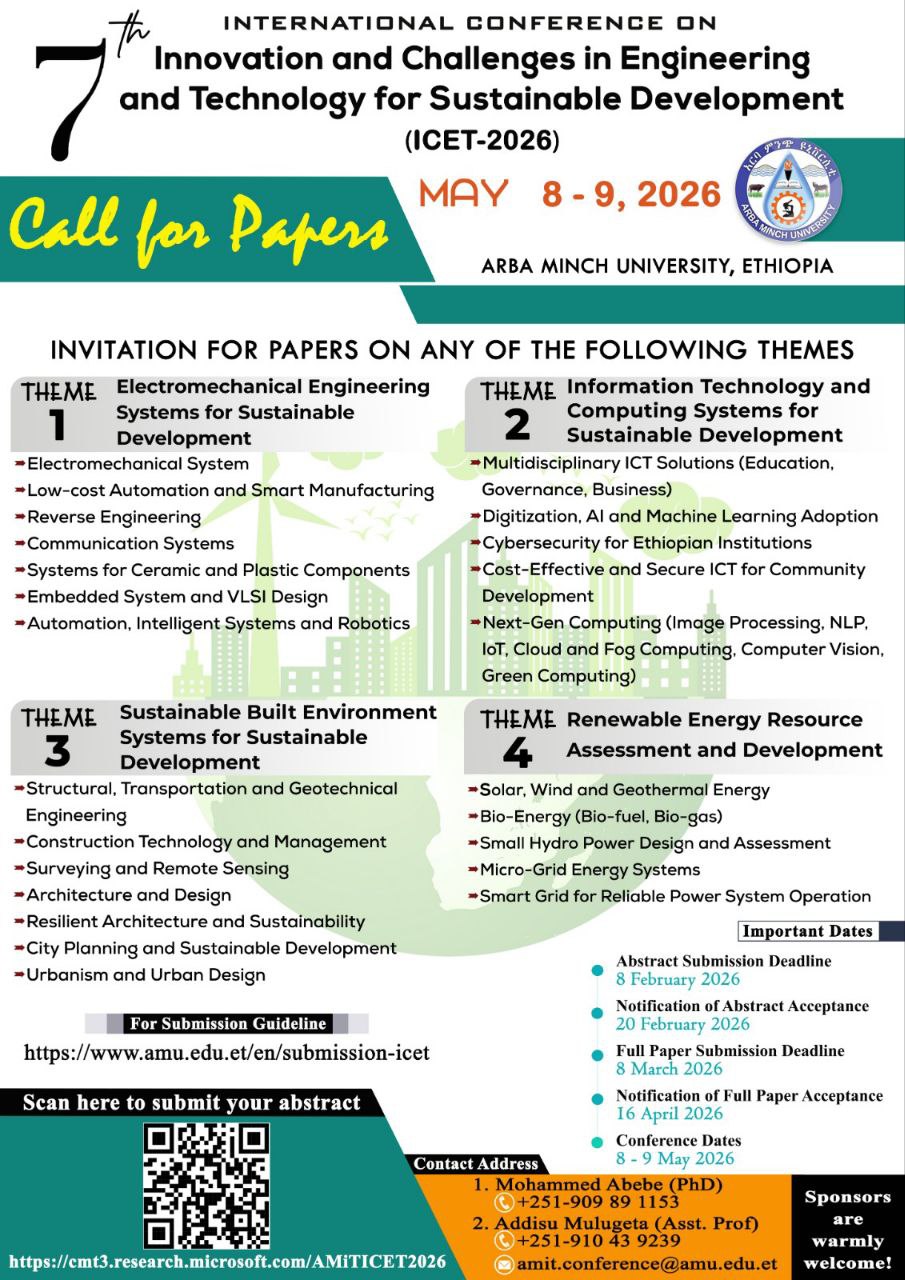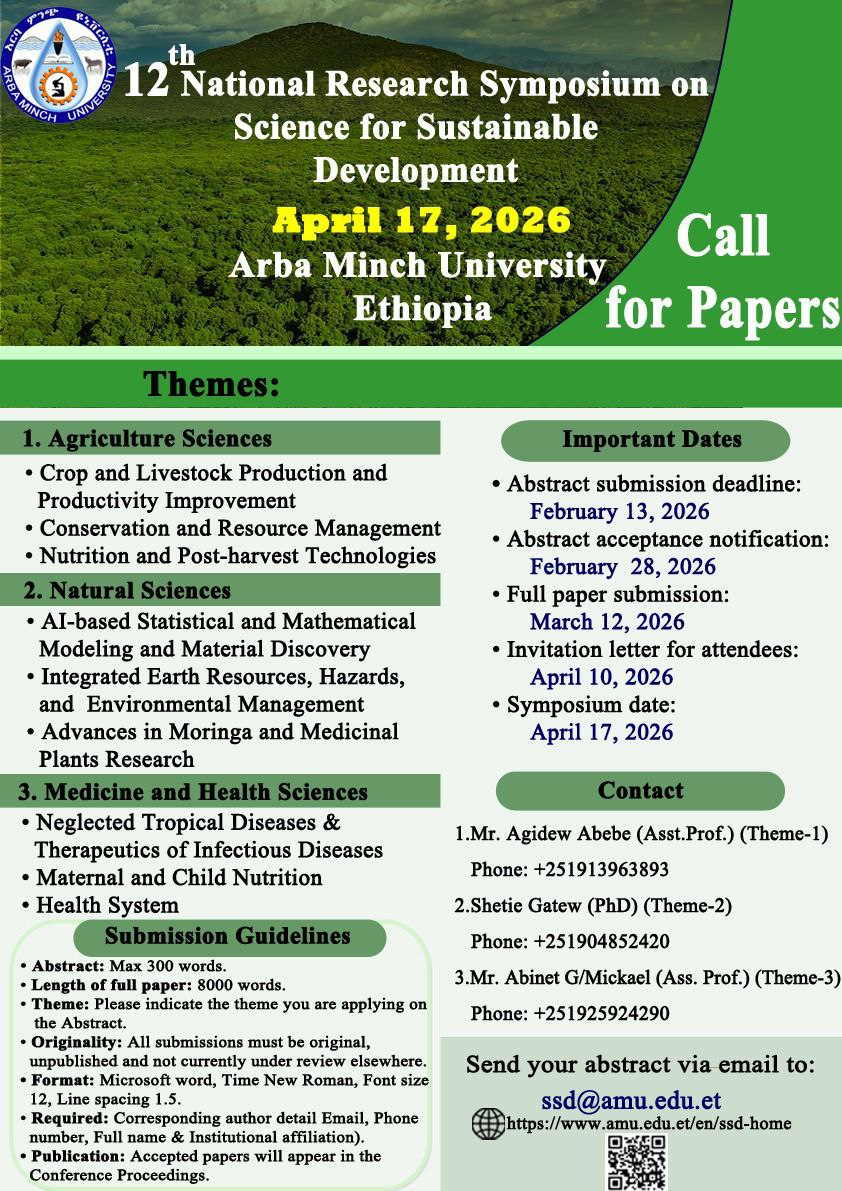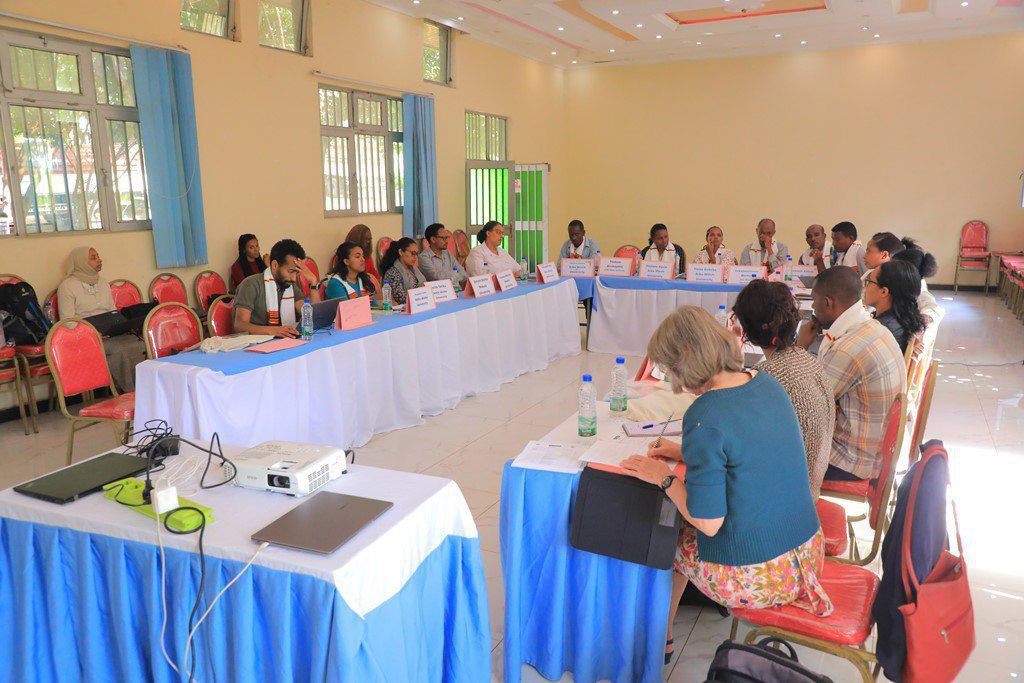Arba Minch University (AMU), through its Institutional University Cooperation (AMU-IUC) Transversal Institutional Strengthening Project (TISP7), successfully conducted a week-long PhD Training on Gender Inclusivity and Essential Research Skills from August 25–30, 2025. The training brought together 24 PhD candidates from leading Ethiopian universities, including Arba Minch, Addis Ababa, Jimma, Mekele, Ambo, Hawassa, and Gondar. The program aimed to strengthen participants’ research capacity while promoting gender- and diversity-sensitive practices in academia. Click here to see more photos.
Closing the program, Dr. Teklu Wegayehu, AMU Vice President for Research and Cooperation and South Project Coordinator, expressed deep pride in the success of the training and gratitude to the trainers for their dedication and the PhD candidates for their active participation. He noted that participants were “very lucky” to spend six days with world-class scholars under an internationally recognized program, reminding them that they had been systematically selected from many applicants, which brings with it a responsibility to deliver results. Dr. Teklu stressed that the skills gained—ranging from critical thinking and data analysis to effective writing, presentation, and gender-inclusive approaches—are not only essential for completing dissertations but also lifelong assets for advancing knowledge and driving change. He urged trainees to uphold curiosity, integrity, and resilience, to collaborate widely with mentors and peers, and to use their research to serve both academia and communities, reminding them that research is not a solitary endeavor but a shared mission to be pursued in the spirit of “Sharing Minds, Changing Lives.”
In his remarks, Dr. Fassil Eshetu, AMU-IUC Project Manager, emphasized the importance of advancing PhD research skills and fostering inclusivity in higher education. He acknowledged the collective effort of AMU-IUC project members in making the program possible, encouraged participants to engage actively, and, during the closing session, urged them to apply immediately what they had learned over the six days. He highlighted that the training was conducted to international standards, delivered through a blended approach with both in-person and online sessions led by senior professors from Belgian universities, providing a rich learning experience for all participants. Dr. Fassil also reminded trainees of VLIR-UOS’s guiding motto, “Sharing Minds, Changing Lives”, stressing the importance of disseminating the knowledge gained to peers and institutions.
One of the lead trainers, Prof. Veerle Draulans from KU Leuven University and TISP7 North Project Leader, underlined the importance of equipping PhD candidates with both technical research skills and sensitivity to gender and diversity. She highlighted core areas covered by the training, including formulating central research questions, research planning, qualitative and quantitative methods, effective communication of research findings, and inclusive stakeholder engagement. She also reflected on the role of Artificial Intelligence (AI) in PhD research and shared global perspectives on gender equality and social inclusion through initiatives such as CGIAR and the Gender Impact Platform.
Dr. Genaye Tsegaye, TISP7 South Project Leader, shared the project’s achievements in advancing gender inclusivity. She highlighted efforts such as the adoption of a Gender Mainstreaming Policy, the provision of daycare services to support women scholars, and school campaigns aimed at challenging harmful stereotypes that limit girls’ education. She also noted that the week-long PhD training itself is a key part of TISP7’s strategy, providing participants with practical skills in research planning, gender- and diversity-sensitive approaches, and effective communication, thereby reinforcing the project’s goal of creating an inclusive academic environment. She stressed that TISP7 collaborates with six other AMU-IUC sub-projects to ensure gender perspectives are fully integrated into PhD research and outreach activities.
Mrs. Bayush Tesfaye, Gender & Outreach Coordinator, explained the scope of the training and reaffirmed the project’s commitment to building a network of skilled and inclusive researchers. She also noted that the project will continue to organize such important trainings in the future to further strengthen research capacity and gender inclusivity across Ethiopian universities.
Trainees reflected on the value of the program. Gistane Ayele, a PhD candidate in Public Health at AMU, appreciated the blended training approach, with both in-person and online sessions led by professors from Belgium. She emphasized that one of the most valuable aspects was the opportunity for participants from different universities to share their diverse experiences, which enriched learning and fostered collaboration. She noted that the knowledge gained in qualitative and quantitative research, gender inclusivity, and presenting research work will be highly important for her PhD journey.
Amsale Tekle, a PhD candidate in Developmental Economics at AMU, described the training as “highly invaluable,” particularly the session on planning PhD work. She highlighted the importance of managing research within a set timeframe and the strategy of signing a memorandum of understanding (MoU) with supervisors—an approach she found to be one of the most interesting and practical aspects of the program.
Shishay Wahdey from Mekele University, who has already secured a PhD scholarship at KU Leuven, expressed that the training was highly relevant as he prepares to begin his doctoral studies. He noted that while some topics were familiar, the program provided greater depth and detail. He added that issues such as responsible AI applications in research and gender inclusivity were entirely new to him, making the training especially valuable for shaping his future PhD journey.
All participants received certificates of completion, and special gifts were presented to the lead trainers, Prof. Veerle Draulans and Dr. Alemtsehay, in recognition of their contributions.





